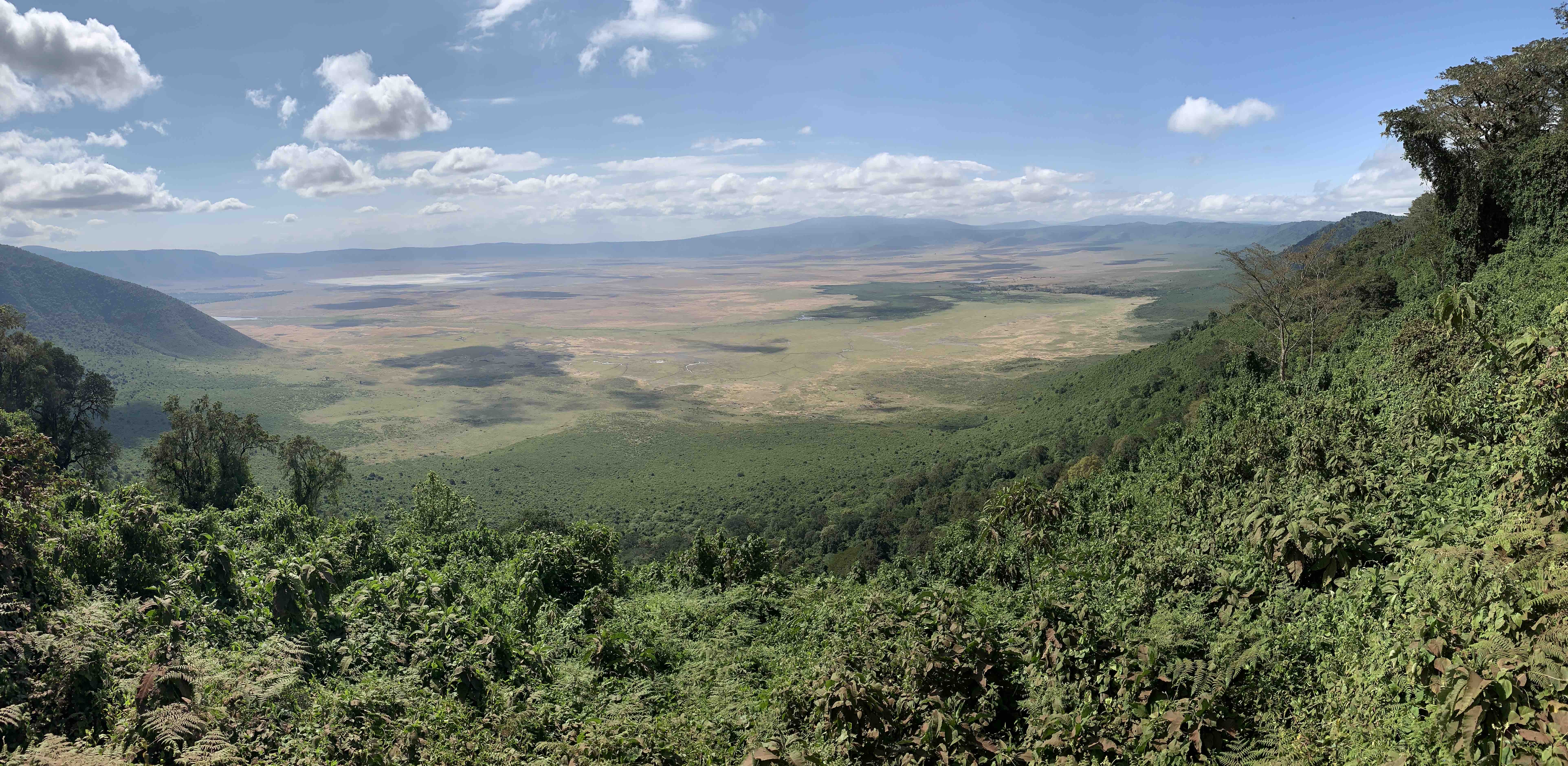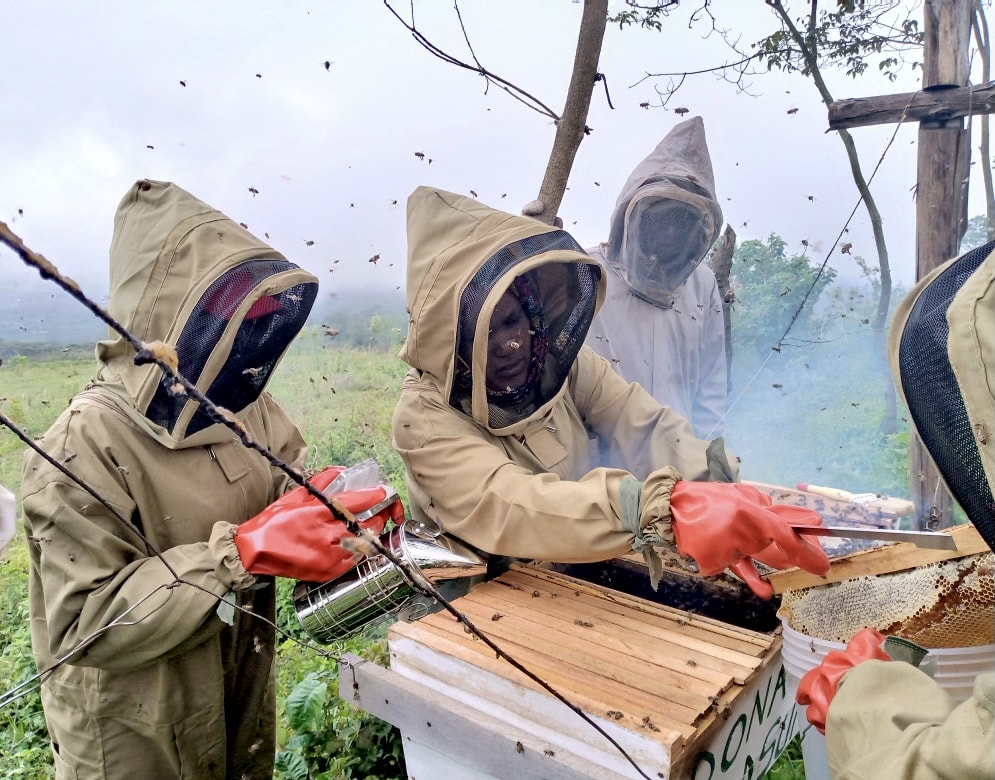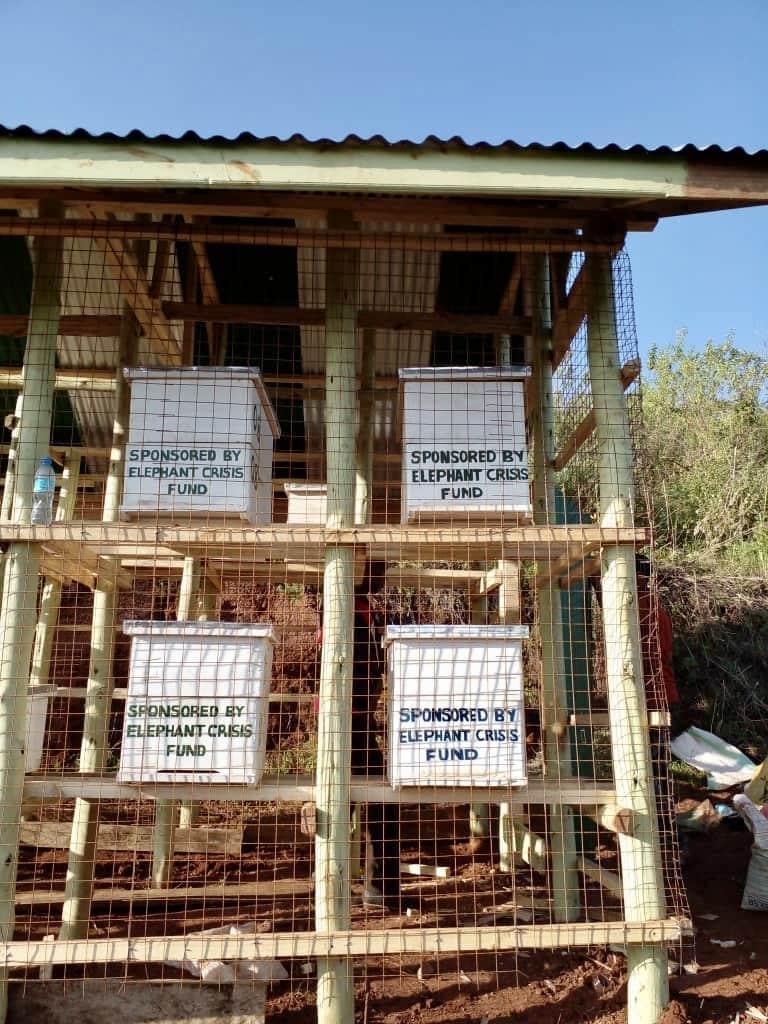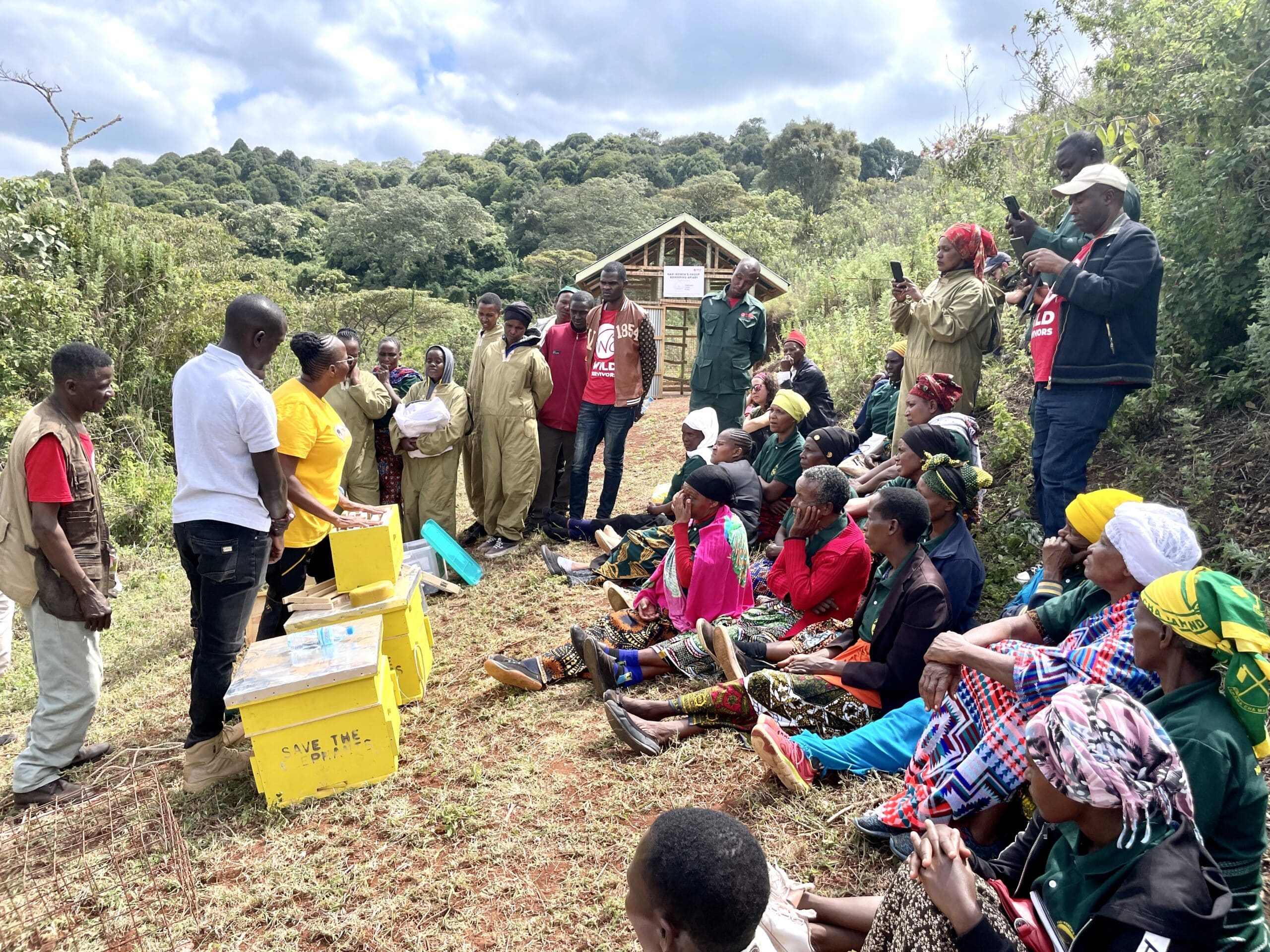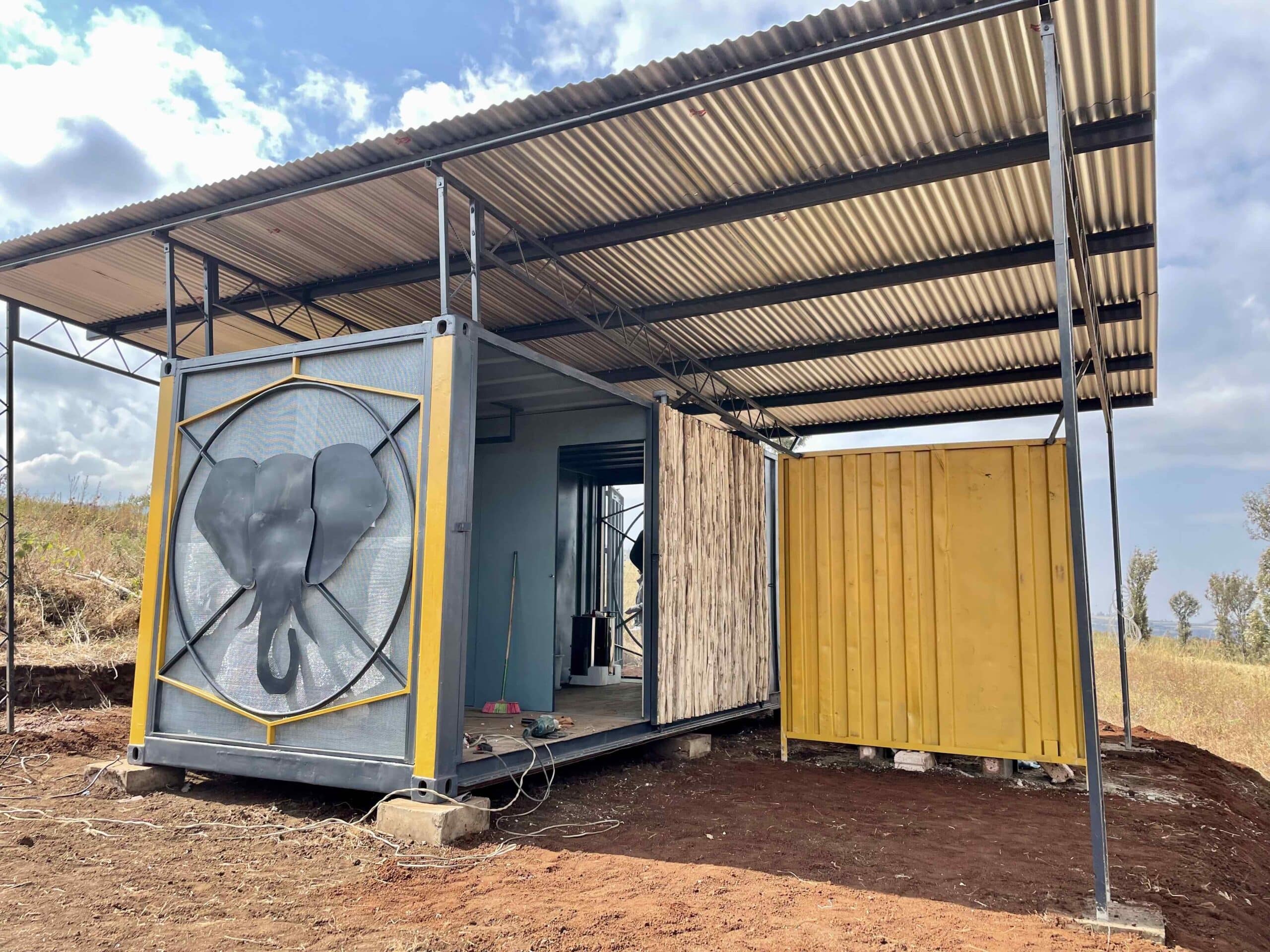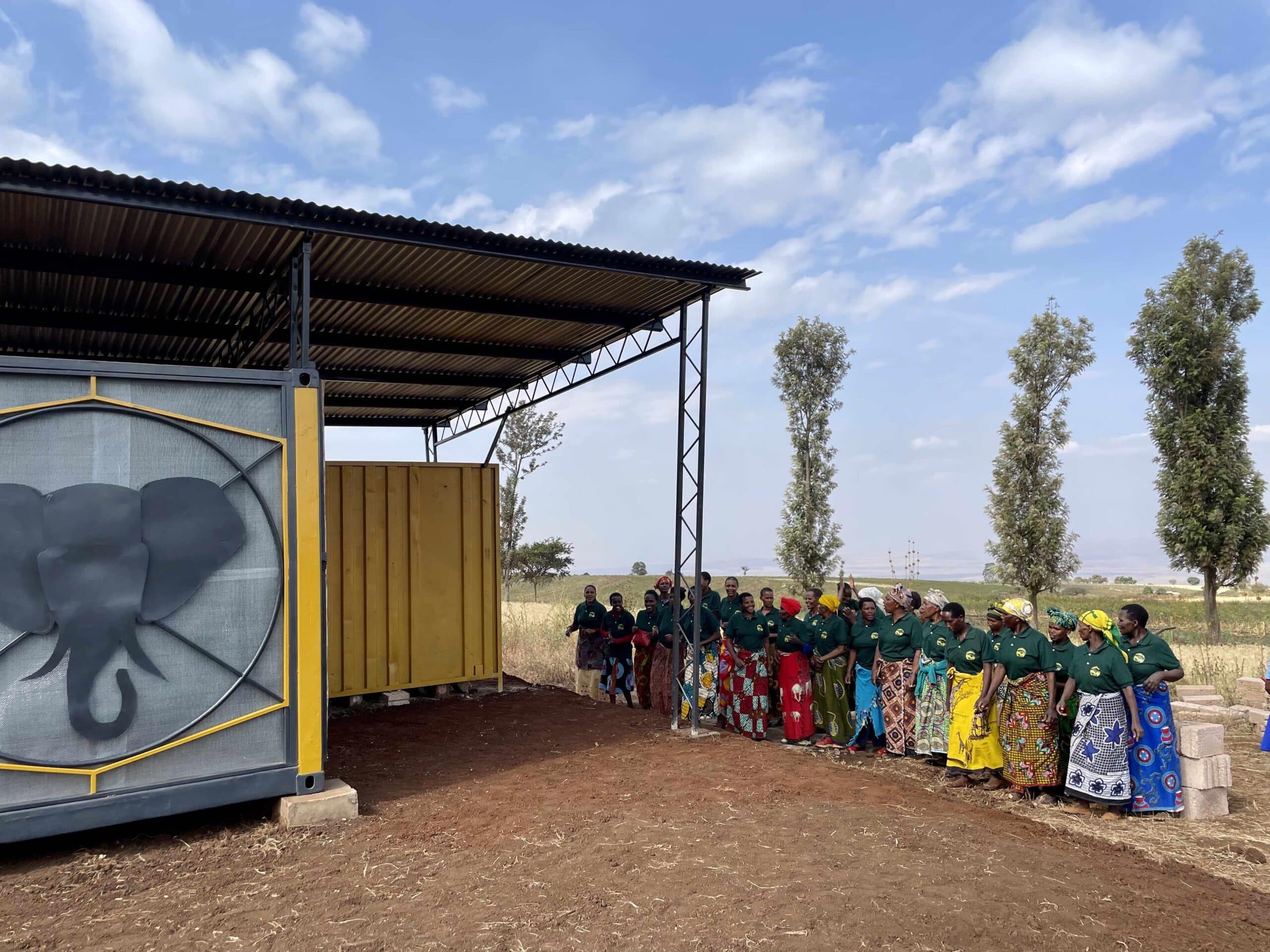In rural Africa, women play significant roles in communities from housekeeping, childrearing, and income earning. They are heavily reliant on natural resources which have over time provided them with valuable knowledge and skills. In human-elephant conflict (HEC) hotspots, women are severely affected since they bear a disproportionate burden of conflict costs. Despite this, women are often not included in wildlife conservation initiatives or policy making decisions.
Through targeted funding, the Elephant Crisis Fund (ECF) is working to bring women to the forefront of conservation. One such initiative is a human-elephant coexistent project overseen by Wild Survivors in Tanzania. The goal is to protect biodiversity in the Upper Kitete wildlife corridor through community income-generating activities that promote environmental protection and coexistence with elephants. The Upper Kitete corridor is the last remaining biodiverse migratory route for around 1,000 elephants that move between the Ngorongoro Crater, Selela Forest and possibly as far as Lake Manyara National Park.
Growing local communities along the corridor depend on natural resources such as firewood, water and medicinal plants, resulting in habitat degradation within the corridor.
Wild Survivors’ project takes a holistic approach to HEC that is gaining traction in the conservation world. It recognizes that communities’ health and well-being needs are part of the solution to reduce conflict with elephants over limited natural resources. By identifying the core livelihood reasons why people are using the elephant corridor, Wild Survivors has been able to work with communities to find alternative livelihood practices to provide household needs from more sustainable resources.
In line with this, women who live and farm along the boundary of the corridor formed a beekeeping enterprise group called the NARI Women’s Group, named after the Nari tree under which the women conducted regular meetings and where the group was formed. With support from Wild Survivors, the women completed their first week of practical beekeepers’ training in February 2022.
In March, the women were joined by the Wild Survivors team and other farmers to construct an apiary, housing 10 Langstroth beehives. The apiary, fully funded by the ECF, opened on International Women’s Day on March 8 2022. The women organized themselves into four teams to monitor and maintain the apiary and continued to sharpen their beekeeping skills.
July was a busy time for the newly skilled beekeepers. They were visited by Save the Elephants’ Elephants and Bees team who conducted beekeeping training with them. To boost their enterprise, Save the Elephants also donated beekeeping equipment including four bee suits, two complete Langstroth beehives, four smokers, four hive tools, eight pairs of leather gloves, 20 wax sheet comb starters, half a kilogram of wax cake, a queen rearing frame, eight Elephants and Bees’ T-shirts, five beekeeping manuals and two catcher boxes.
Earlier in the year, Wild Survivors purchased a 20ft container which was modified into a beautifully designed women’s group enterprise hub. In late July, the fabricated container made its way on a crane from Arusha to Upper Kitete village where it was installed on site.
The NARI Women’s Beekeeping Enterprise Hub was funded by our Elephant Crisis Fund, with support from Nomad Trust. The multi-purpose hub features office space, storage space and honey processing equipment. It was officially opened on July 28 and is the district’s first women-led enterprise HQ. The success of the NARI Women’s Group is an excellent example of why the involvement of women in conservation and helping them find sustainable ways to live with elephants is essential. We applaud the accomplishments of the group and admire their commitment to coexistence. If you like stories such as this positive outcome, please keep supporting our Elephant Crisis Fund through your kind donations, we are able to target our funding investments to the most needy and most impactful projects across the Elephant range states.
